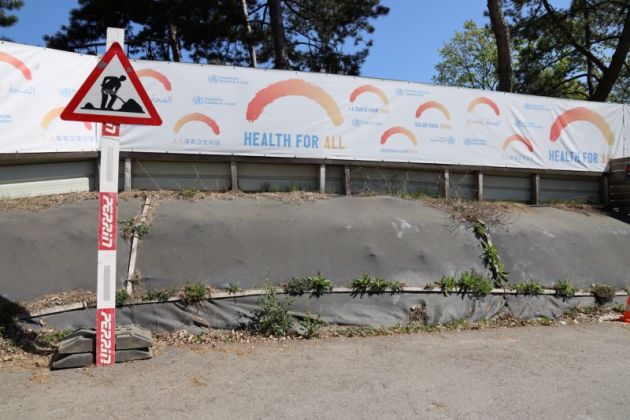Faith-based partners support global pandemic accord says world health body

Faith communities and faith-based organizations are integral to providing comprehensive health care in many countries, including national responses to pandemics, says the World Health Organization, aware that a global pandemic can spring anytime.
In several nations, faith-based organizations, or FBOs, play a significant role in healthcare delivery, a contribution that is often acknowledged, especially in Africa.
The WHO is currently considering a doument that would amount to a global pandemic treaty.
In sub-Saharan Africa, churches are often critical in providing health care.
In many African countries facing severe shortages and poor distribution of health workers, FBOs provide between 30 percent and 70 percent of healthcare services, according to USAID and Capacity Plus, a knowledge-sharing organization.
Moreover, FBO facilities often serve remote and rural areas where governments need help attracting and retaining health workers.
Yet, FBO health workers frequently need to be recognized for their contributions and are often uncounted in national statistics.
The contribution of the Catholic Church to healthcare services globally is about 25 percent. Still, in parts of Sub-Saharan Africa, this rises as high as 40 percent to 70 percent, especially in isolated rural areas, according to Independent Catholic News.
"The contribution of Irish missionaries to developing and providing these services throughout Africa is inestimable. It is common for people there to seek out 'mission hospitals' because of the reputation they have for the provision of holistic care to patients," ICN reported in October 2023
Members of FBO networks also provide a significant amount of preservice education and in-service health worker training in African countries.
In Malawi and Uganda, for example, FBOs provide 70 percent of nursing and midwifery training, according to Capacity Plus.
In Tanzania and Zambia, they provide between 30 percent and 55 percent of such training. FBO schools have a history of management flexibility and innovation and an excellent track record of training health workers who serve in rural areas
During the COVID-19 pandemic, faith partners played crucial roles, including providing inpatient care, conducting community education and engagement to prevent transmission, fostering vaccine confidence, and advocating for equity in access to vaccines and essential health services.
Faith organizations, including members of the WHO Faith Network for Emergency Preparedness and Response and other partnerships between civil society and faith organizations, have developed and released statements as the Inter-governmental Negotiating Body (INB) of WHO member nations begins its ninth meeting.
Member States will continue negotiating a Pandemic Accord at the meeting ahead of the World Health Assembly in May 2024.
These statements support WHO member countries in their progress on developing the pandemic and highlight the critical role faith and faith-based organizations play in pandemic and epidemic preparedness.
They help the WHO respond and make a strong call for equity, justice, collaboration, and compassion in the text and future responses to health emergencies.
FAITH NETWORK
WHO said it convenes the Faith Network for Emergency Preparedness and Response to increase access to accurate and relevant information.
The network strives to foster collaborative sharing on health emergency preparedness and response topics and the intersection between faith and public health.
The WHO Faith Network was formalized in early 2022 with over 50 partners representing a diversity of faiths, including service providers, faith leaders, faith-based organizations (FBOs), and academic institutions.
The statement linking WHO and FBOs was developed and circulated by members of the WHO Faith Network for emergency preparedness and response, not by WHO.
The statement can be accessed at partners' websites, such as those of the African Methodist Episcopal Church, Associazione Comunità Papa Giovanni XXIII, Anglican Health and Community Network, Global Ministries / The United Methodist Church, Christian Health Association of Kenya, Go Health, International Catholic Migration Commission, Network of Ecumenical Patriarchate for Pastoral Health Care, World Vision International, and the World Council of Churches.